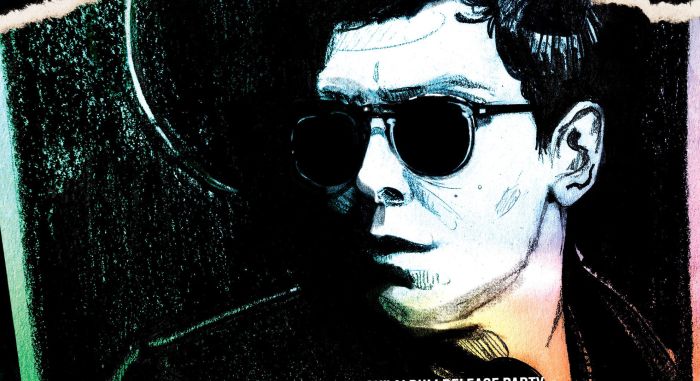"Her" imagines a futuristic world in which a lonely man falls in love with an advanced, sentient operating system. That’s not too far-fetched in this era of smartphones and tablets, with our lives becoming increasingly contained within those devices.
Spike Jonze’s tender romance has more on its mind than a heightened commentary on a pervasive cultural trend, however. It’s a movie about nothing short of what it means to live and to love, exploring advanced notions of consciousness and existence that locate it squarely within the tradition of great philosophical inquiries.
Joaquin Phoenix stars as Theodore Twombly. He’s a sensitive, damaged soul who works as a professional letter writer and seeks out melancholy songs as he traverses a glossy cityscape in high-waisted pants and plaid shirts. His impending divorce from wife Catherine (Rooney Mara) fills him with abiding sadness; the movie evokes the crippling aftereffects of a shattered romantic relationship by paralleling Theodore’s solitary existence amid the impersonal urban sprawl with sun-drenched flashbacks to their once-happy marriage.
The clouds start to part when he purchases OS1, the aforementioned ever-evolving operating system, and discovers that it has adopted a sweet, charming and fully cognizant personality named Samantha (voice of Scarlett Johansson).
"Her" packs an emotional wallop but it does so using muted, pleasant tones; the future depicted here skews toward a utopian vision. It’s a universe characterized by raspberry reds and oranges, packed with sleek skyscrapers sporting floor-to-ceiling glass windows, featuring idyllic beaches and public spaces of marble and manicured gardens that are populated by smiling pedestrians. Jonze’s camera is alive to both the wonder and the vague creepiness of it all.
The turmoil is centered entirely on Phoenix, who delivers a performance of soul-baring sensitivity. Starkly departing from pretty much everything he’s ever done, the actor embraces the notion of wearing his heart on his sleeve in a way that never seems anything less than grounded and real. His despondent eyes, his pensive face and his pleading, earnest voice collectively show us a man desperately seeking a way out of an unhappy fog, though he’s still able to appreciate small moments of grace along the way.
Johansson has deservedly received critical acclaim for turning Samantha into a three-dimensional individual, powerfully expressing thoughts and feelings without ever being seen. But Phoenix, as gifted at the art of listening as anyone in his profession, shapes her work by taking it out of the virtual realm and making it real. Their articulate dialogue unpacks complicated emotions without seeming didactic; it does nothing short of re-considering the foundational realities of what consciousness means. Jonze has mastered the give-and-take of great conversation, which he enhances with the subtle tones of Arcade Fire’s score.
The essence of this whole movie is rooted in a scene where Theodore sits on the subway steps after an especially serious conversation with Samantha and observes multitudes of passengers leaving the underground, each chatting with his or her own OS1. He’s hit with the realization that he can never fully have Samantha; what he thought was unique and his own is actually a communal experience.
It’s an extraordinarily apt evocation of the fundamental truth that love is about sacrifice and sharing: It’s about accepting the knowledge that we must surrender a piece of ourselves, we must compromise, in exchange for a lasting and meaningful connection. This is a hard realization, a stark corrective to the idealism of youth and its ideas of romantic destiny. No one is perfect; no one is ever exactly who we’ve conceived them to be. But if they’re there in good times and bad, in the still of the night and amid the chaos of the day, nothing else matters.
Directed by Spike Jonze
Starring Joaquin Phoenix, Scarlett Johansson, Amy Adams
Rated R

















